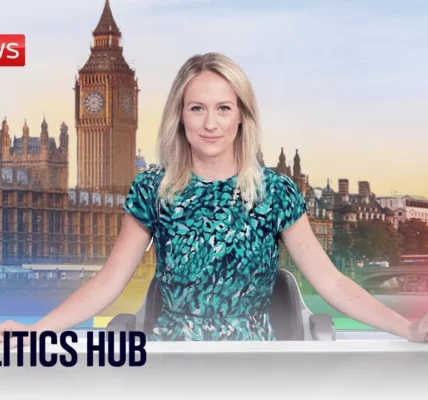Political Landscape and Future Challenges in Maidstone

Welcome to Maidstone, a constituency rich in political history and current debates surrounding Brexit, immigration, and defense policies. In this article, we delve into recent developments and the implications for the future of the UK.
Introduction
Maidstone, located in the heart of the Garden of England, has a storied political background that resonates with many. The constituency has seen prominent figures such as Sir John Wells, who served from 1950 to 1987. His later political shift towards UKIP highlights the evolving political landscape in the UK. Recent discussions surrounding Brexit and its impact on families, communities, and national identity have ignited passionate debates. This article will explore these themes in greater depth, as well as the pressing issues of defense and immigration that are currently shaping the future of Maidstone and the UK at large.
The Legacy of Sir John Wells and Political Shifts
Sir John Wells was a significant political figure for Maidstone, known for his pro-European stance during his tenure. His later acknowledgment of having made a mistake by supporting the European Community signifies the shifting tides of political opinion in the UK. This transition reflects a broader trend where political ideologies are continuously evolving in response to public sentiment and changing global dynamics.
The Rise of Reform UK
Reform UK is emerging as a formidable force in British politics, capturing the attention of voters disillusioned with traditional parties. The party’s focus on practical issues like family, community, and the country’s future resonates deeply with constituents. The recent polling suggesting that Reform UK is gaining traction, even reaching 20% in some surveys, indicates a significant political shift.
Brexit: A Day of Reflection and Celebration
June 23rd marks the anniversary of Brexit, a momentous occasion in British history. This year, it coincided with a personal milestone for many as well—such as the birth of my first grandchild. Such intersections of public and private life serve as poignant reminders of the broader implications of political decisions on our everyday lives.
The Impact of Brexit on Families and Communities
- Increased discussions around family values and community responsibilities.
- Heightened awareness of political issues at family gatherings.
- Potential for Brexit to reshape social structures and community interactions.
Defense Policy: A Critical Discussion
One of the most pressing issues in current UK politics is the state of the country’s defense capabilities. The historical context of military engagement and the need for a robust defense strategy cannot be overlooked. The current government has faced criticism for reducing military personnel and resources, raising concerns about national security.
Current Challenges in UK Defense
- Significant cuts to military personnel, with 72,000 fewer soldiers than in previous decades.
- Concerns about recruitment and retention of skilled personnel in the armed forces.
- Challenges in meeting NATO’s defense spending requirements effectively.
Calls for Increased Defense Spending
It is imperative that the UK increases its defense spending to at least 3% of GDP to ensure national security and maintain credibility within NATO. The geopolitical landscape is increasingly volatile, with emerging threats from various global actors. Without a strong military presence, the UK risks losing its position as a serious player on the world stage.
Immigration Policy: A Necessary Reassessment
The UK faces an unprecedented challenge regarding immigration. The dramatic rise in net migration over the past few decades has had profound implications for housing, healthcare, and social services.
The Impact of Immigration on Society
- Increased pressure on housing and infrastructure, with a need for new homes being built every two minutes.
- Strain on the NHS and public services, leading to longer wait times and reduced access for citizens.
- Impact on the younger generation’s ability to secure affordable housing, with rising rents making it increasingly difficult to live independently.
Proposed Solutions for Immigration Reform
To address these challenges, a comprehensive immigration policy is necessary. This includes:
- A temporary freeze on overall immigration numbers to allow the country to catch up with current demands.
- Reassessing the criteria for immigration to prioritize skilled workers who can contribute positively to society.
- Ensuring that individuals coming to the UK do not have immediate access to benefits until they have established residency for five years.
Conclusion
The political landscape in Maidstone and the wider UK is evolving at a rapid pace. With pressing issues such as defense policy and immigration taking center stage, it is crucial for citizens to engage in meaningful discussions about the future of their communities and the country as a whole. As we move forward, a collaborative effort to address these challenges will be essential. Join the conversation and contribute to shaping a future that prioritizes the interests of all citizens. Are you ready to take a stand for the future of our country?
“`




